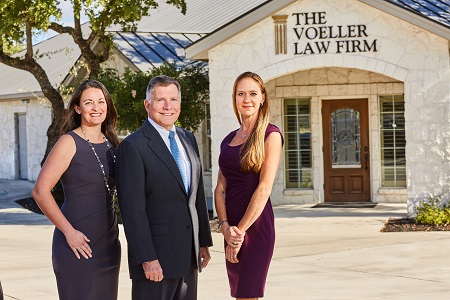After a person dies, most Texas estates need to go through probate. Probate is the legal process where the deceased person’s estate is settled, including collecting (known as marshalling) the assets, paying any existing claims and debts, and distributing the residual estate to beneficiaries as outlined in the will if there is one. However, if there is no valid will, the assets will be distributed to family members as described in the Texas Estates Code.
Probate might be required for possessions with a deed or a title, such as real estate and cars. In 2015, the Texas legislature systematized a long-standing practice previously known as the “Lady Bird Deed,” now referred to in the statues as “Revocable Transfer on Death Deed.” In a situation where such a deed is in place, the property will transfer automatically to the named individuals without probate. Various other kinds of assets can have “Pay on Death” (POD) or “Transfer on Death” (TOD) provisions, such as brokerage accounts and bank accounts. These types of arrangements supersede contrary provisions of a will.
What happens to the community property of a married couple?
If neither of the spouses has children by any other partners from previous marriages or relationships, all of the community property will be inherited by the surviving spouse. All property is considered community property unless it is consented or proven to be “separate property.” Generally, separate property is the property that a spouse had before the marriage, which came by inheritance or gift, personal injury settlements, and property or money, which is traceable to the separate property. It can be more challenging to prove separate property like financial accounts that have years of transactions and are commingled.
What are other non-probate assets?
Yes, there are multiple assets which do not need to go through the probate process if they have designated beneficiaries, such as:
- Retirement accounts like 401Ks and IRAs
- Pension plans
- Life insurance policies
What happens with bequests to minors?
All gifts given to young adults and minors should be left to a trustee. If not, then a guardian of the estate will need to be designated at a considerable expense. Additionally, the beneficiary will not be entitled to their inheritance until their 18th birthday, which may prove to be an inconvenience. Bear in mind this applies to the POD and TOD designations, and it may be beneficial to consult an attorney. Please note that this is different from a living trust, as will be mentioned below.
How quickly do I have to file probate documents?
In the state of Texas, you have up to four years to file probate papers after the deceased’s death. You could probate a will without an attorney in theory; however, it is not feasible for most people. Often, probate proceedings are concluded within several months.
What happens in the probate process when there is no will?
Texas state law has a provision for the estates of decedents that did not leave a will. The term known as intestate is used for the circumstance where there is an estate without a will. In these cases, the probate process will likely be more time-consuming and undoubtedly more expensive. The court will allocate property and assets according to marriage and blood relations, as outlined in the Texas Estates Code.
What are “death taxes?”
The new tax law doubled the previous total, which is exempt from estate and gift tax to $11.2 million per person. Consult an estate tax professional who can do advanced planning to diminish the charge. In 2025, the sum will revert to the original $5.6 million.
What should I do?
Consult a knowledgeable attorney and get a professional to draft a will and other documents for you. Consider obtaining a Revocable Transfer on Death Deed. When a loved one perishes, immediately consult an expert probate attorney. However, if there is no urgent issue, the matter can wait a few weeks or months, but don’t procrastinate for years upon years.
Is a “living trust” necessary?
Maybe not. A lot of attorneys draft these sorts of trusts for people who seek them; however, these trusts don’t save taxes. They may (and they may not) circumvent probate, but numerous people will end up paying extra for a living trust than they would have spent for a will and then the process to probate the will.
Schedule a Consultation Today to Discuss Estate Planning
There are multiple aspects of probating a will in Texas. The procedure is naturally an experience no one would want to undergo alone. Fortunately, you don’t have to. Our team of attorneys has over 35 years of experience helping families plan for their futures, protecting surviving spouses, and safeguarding assets for loved ones. We welcome you to call the Voeller Law Firm today at (210) 651-3851 to request a consultation and learn more about estate planning. We are proud to serve the greater San Antonio, Bexar County, Comal County, Guadalupe County, and South Texas areas.
Our services go far beyond merely preparing – we do our best to help you protect your future.

